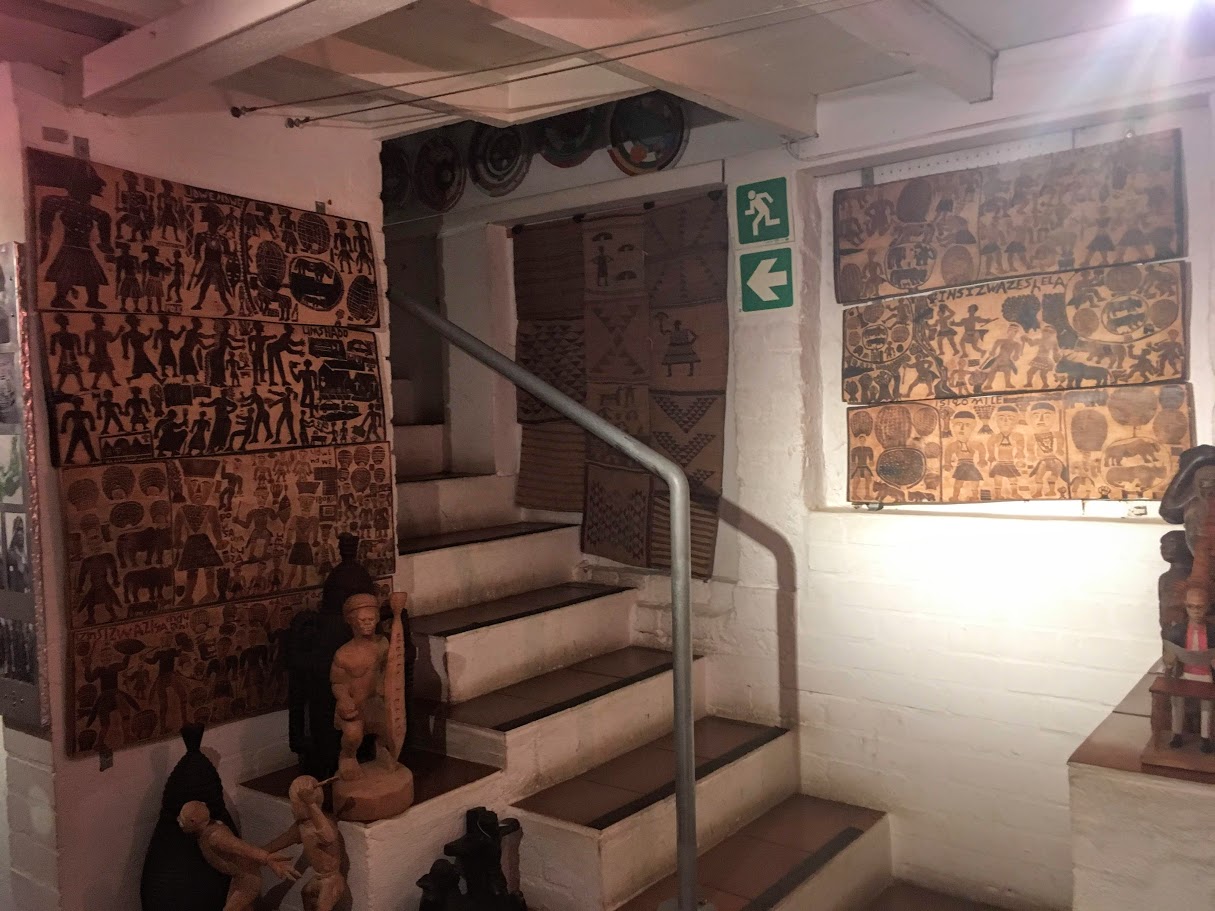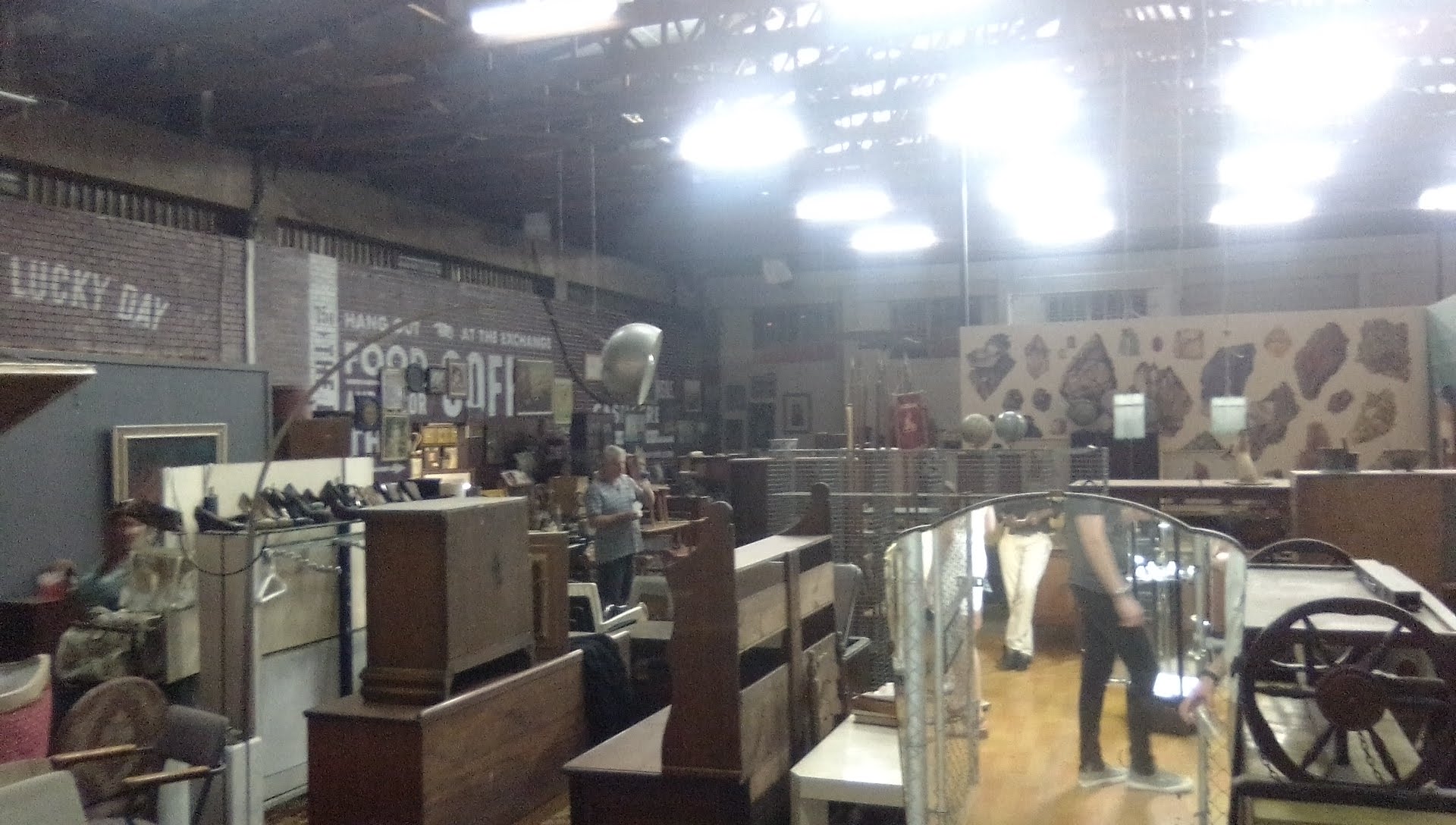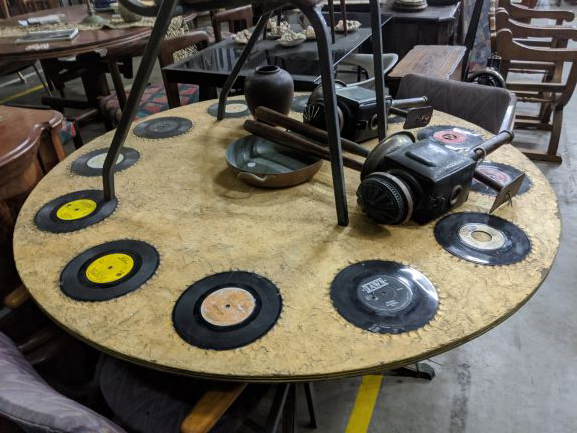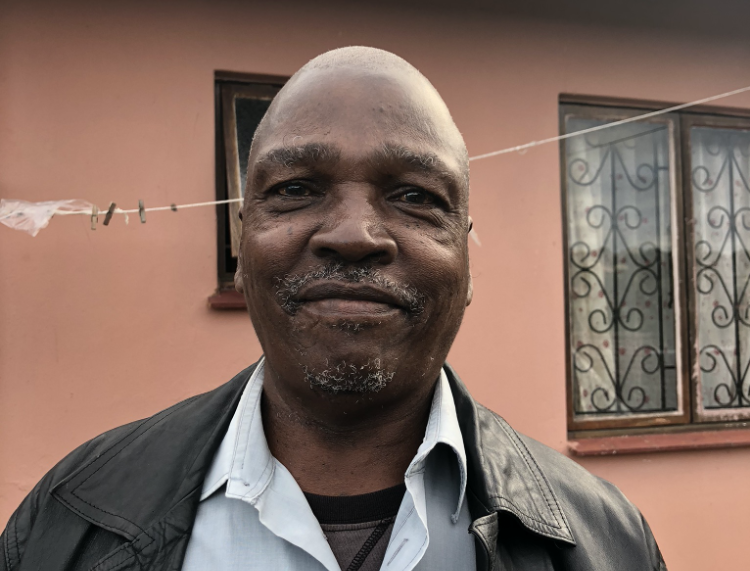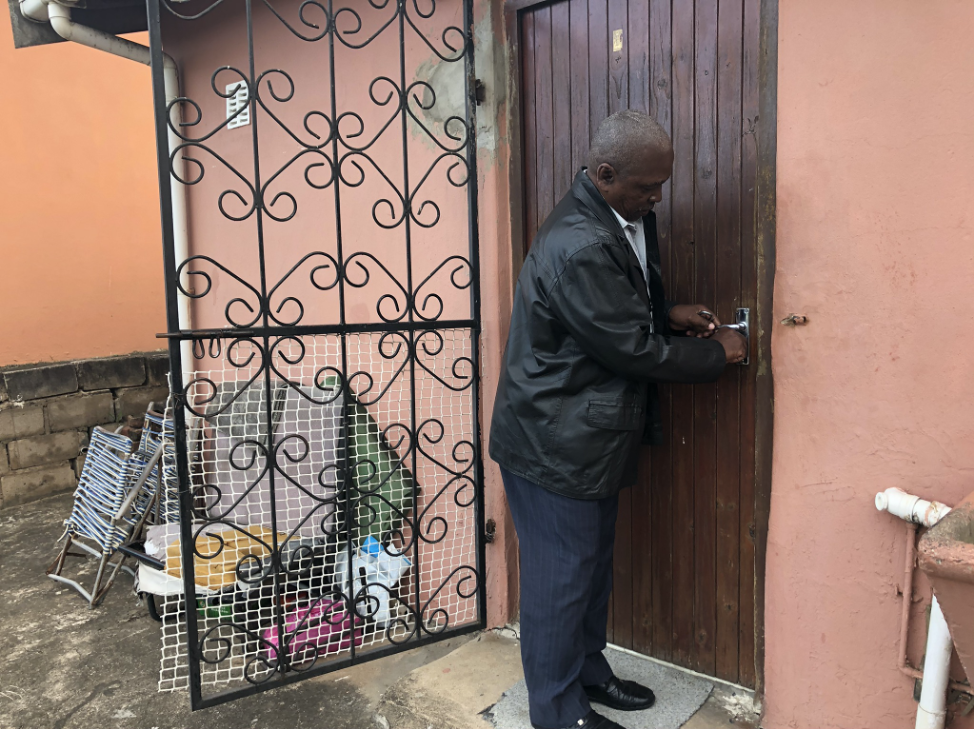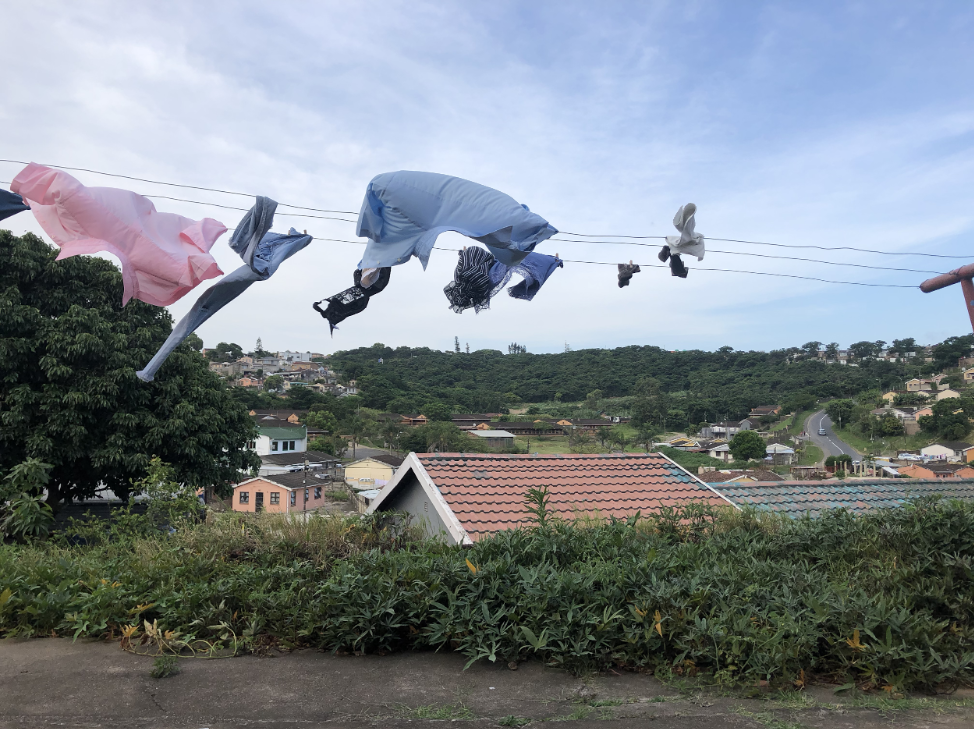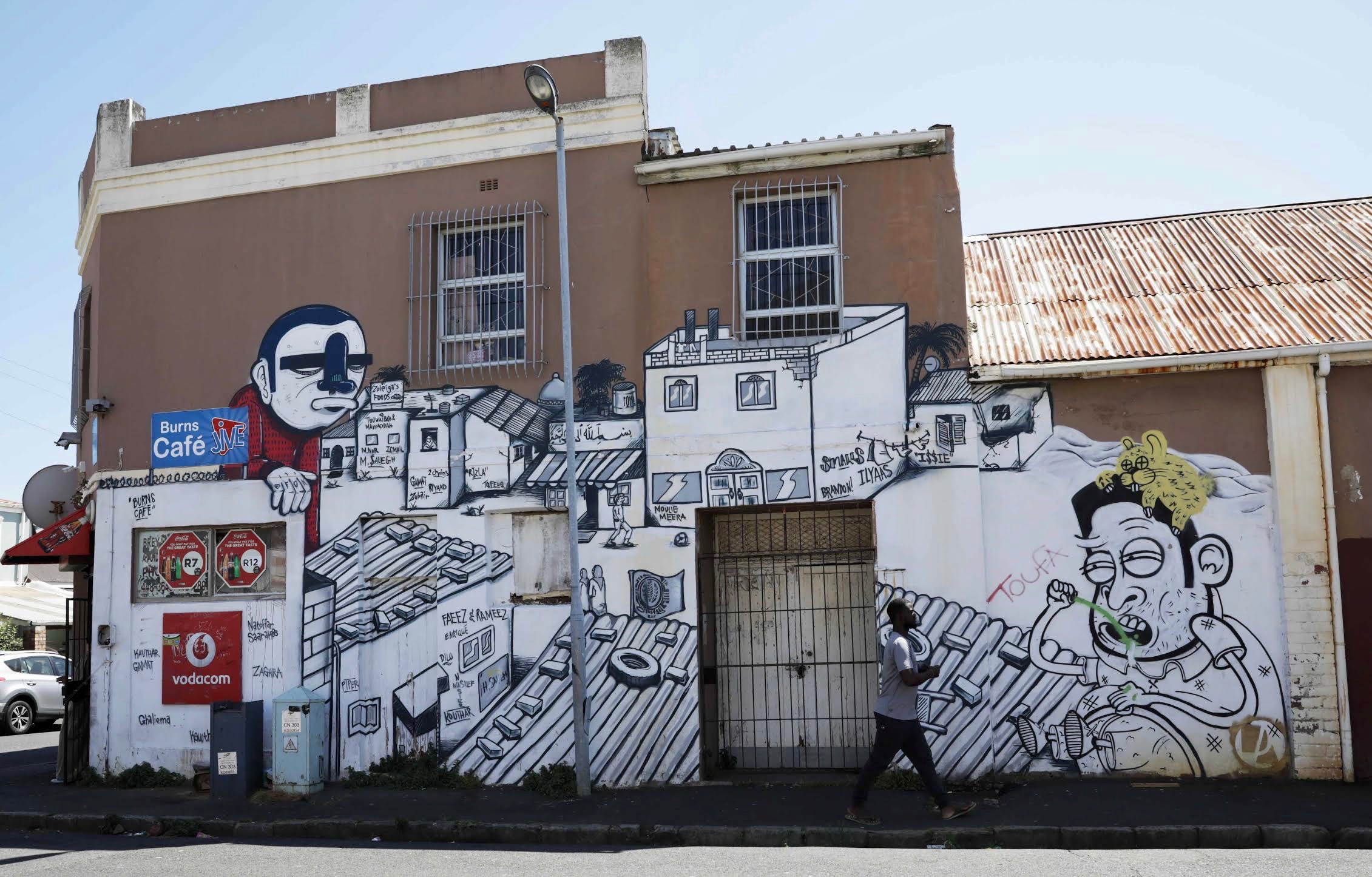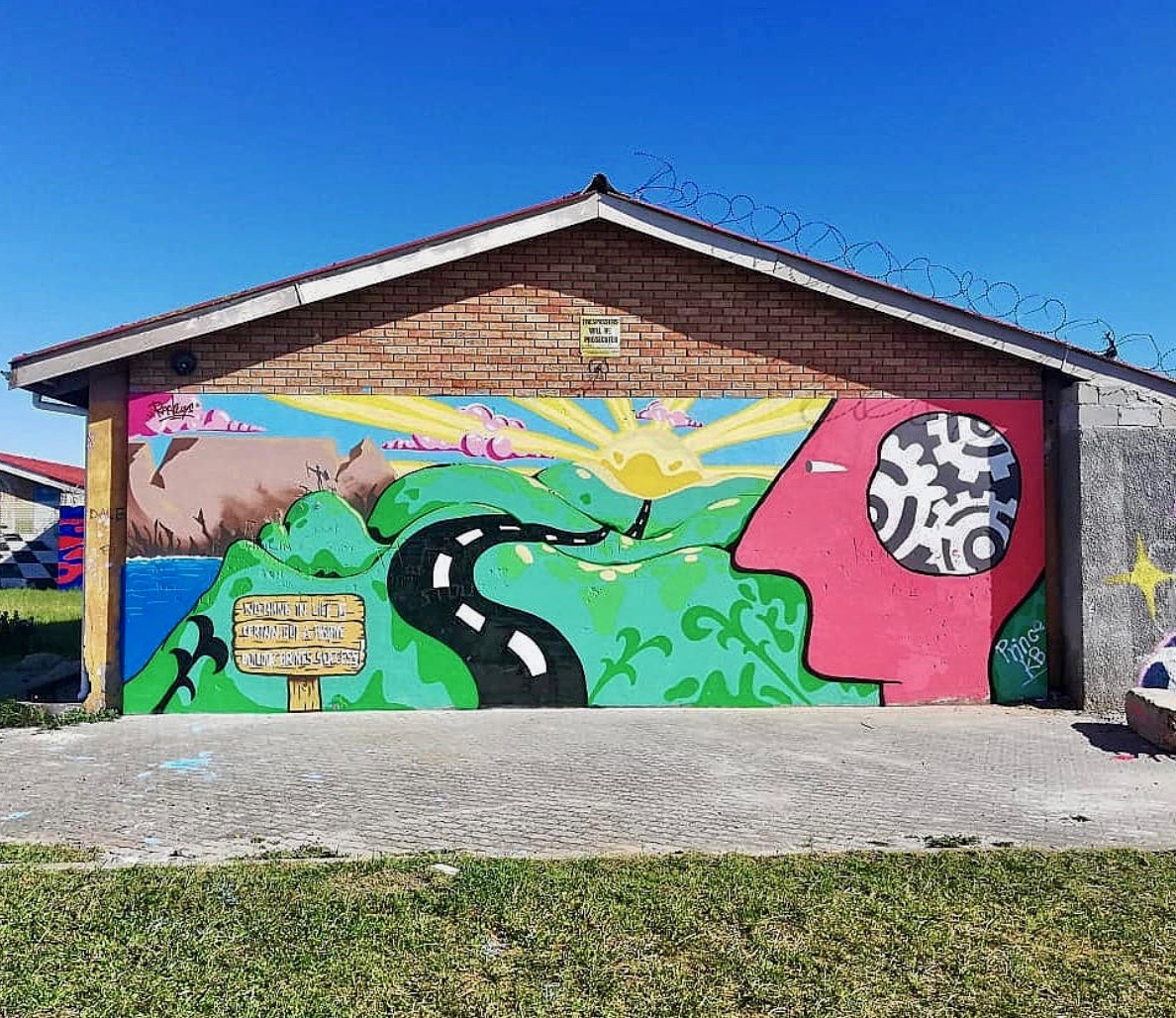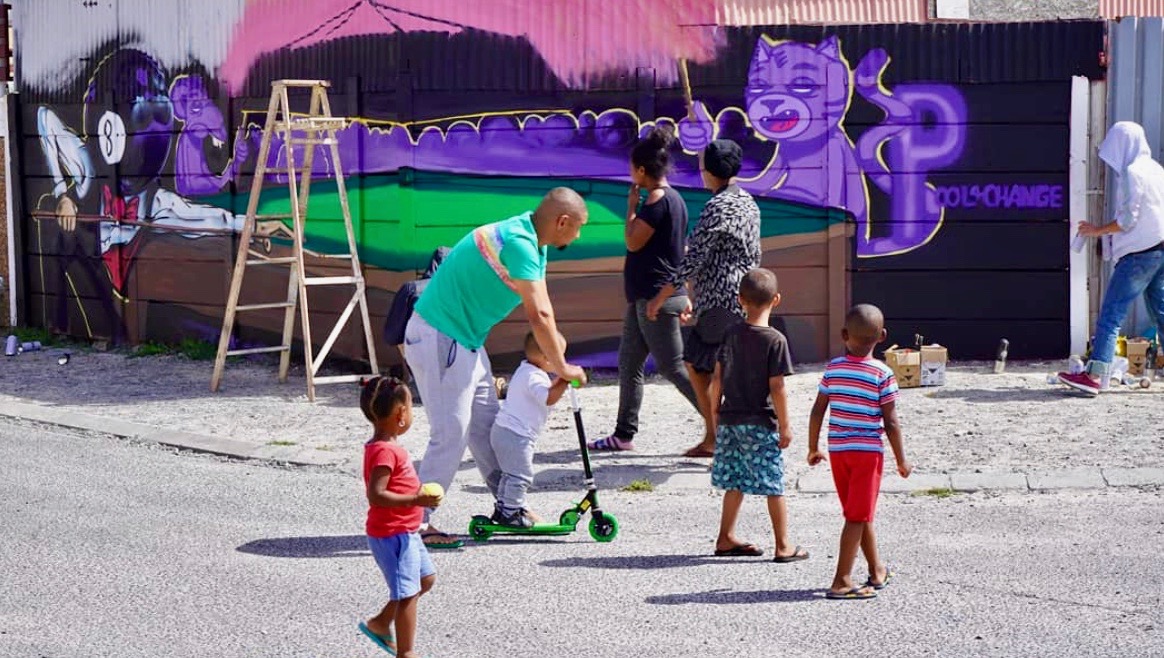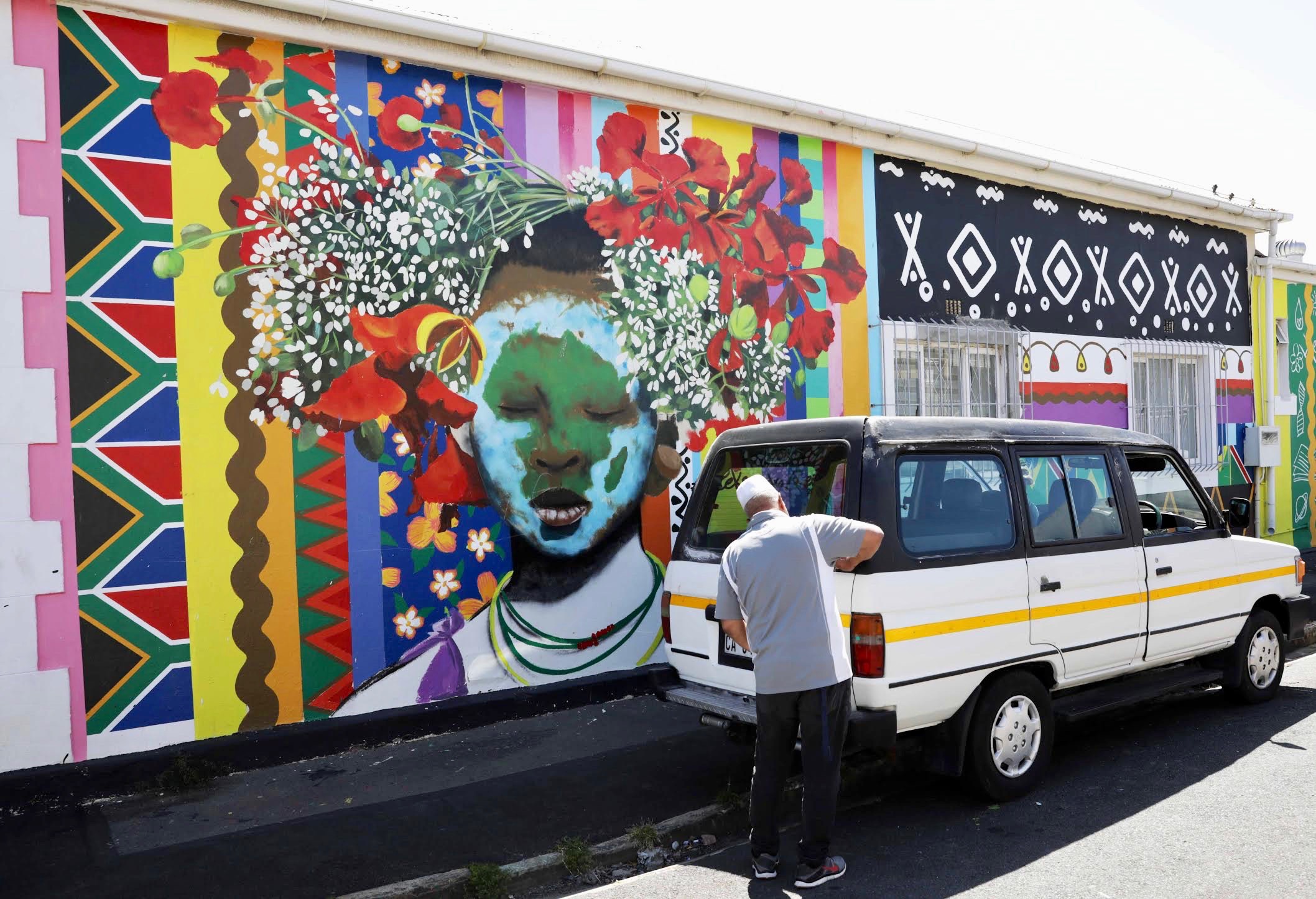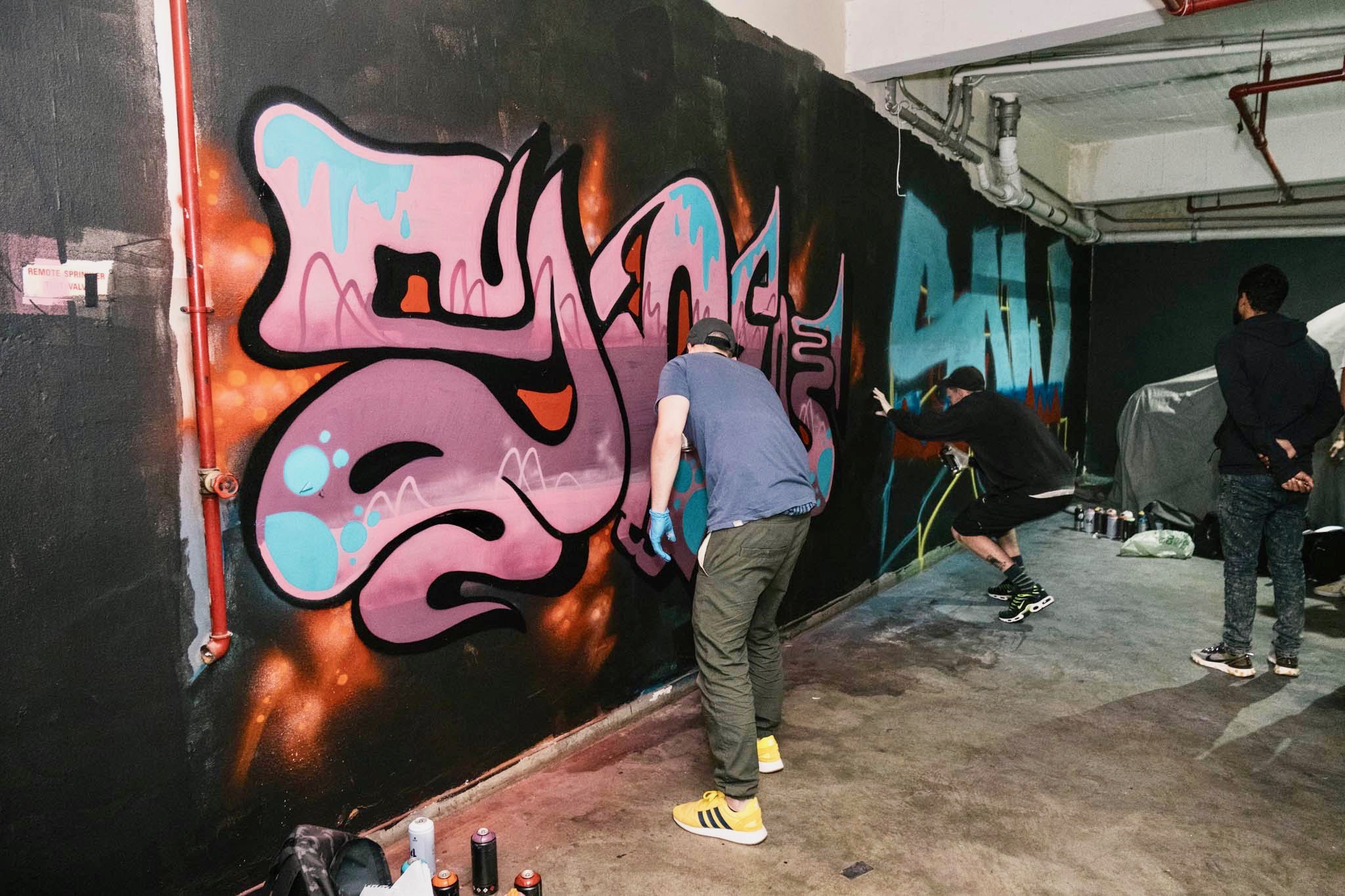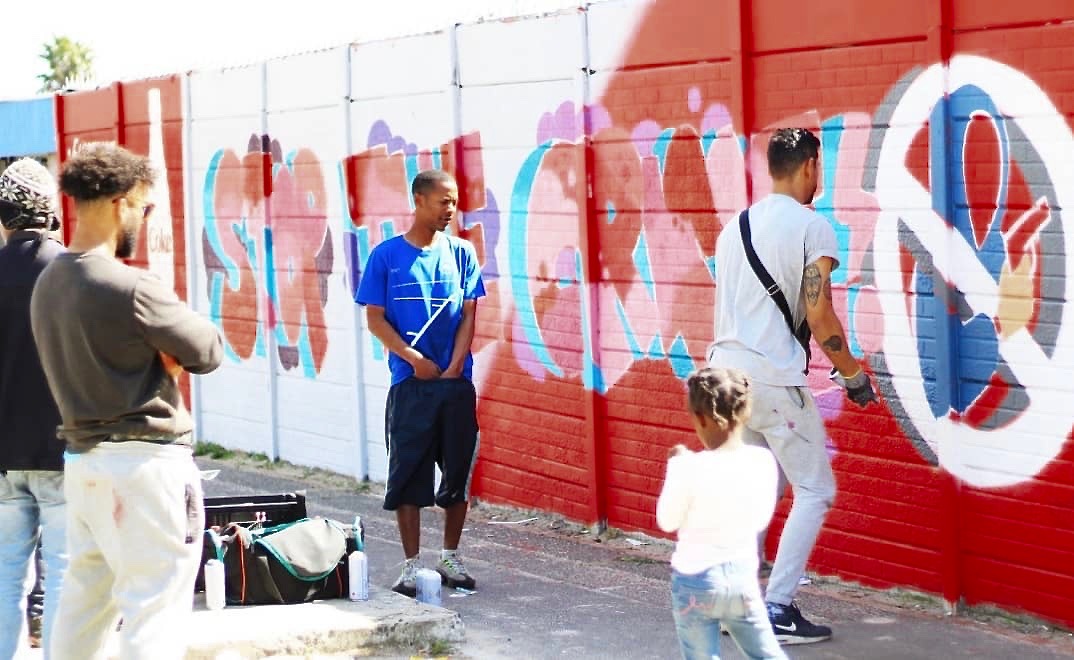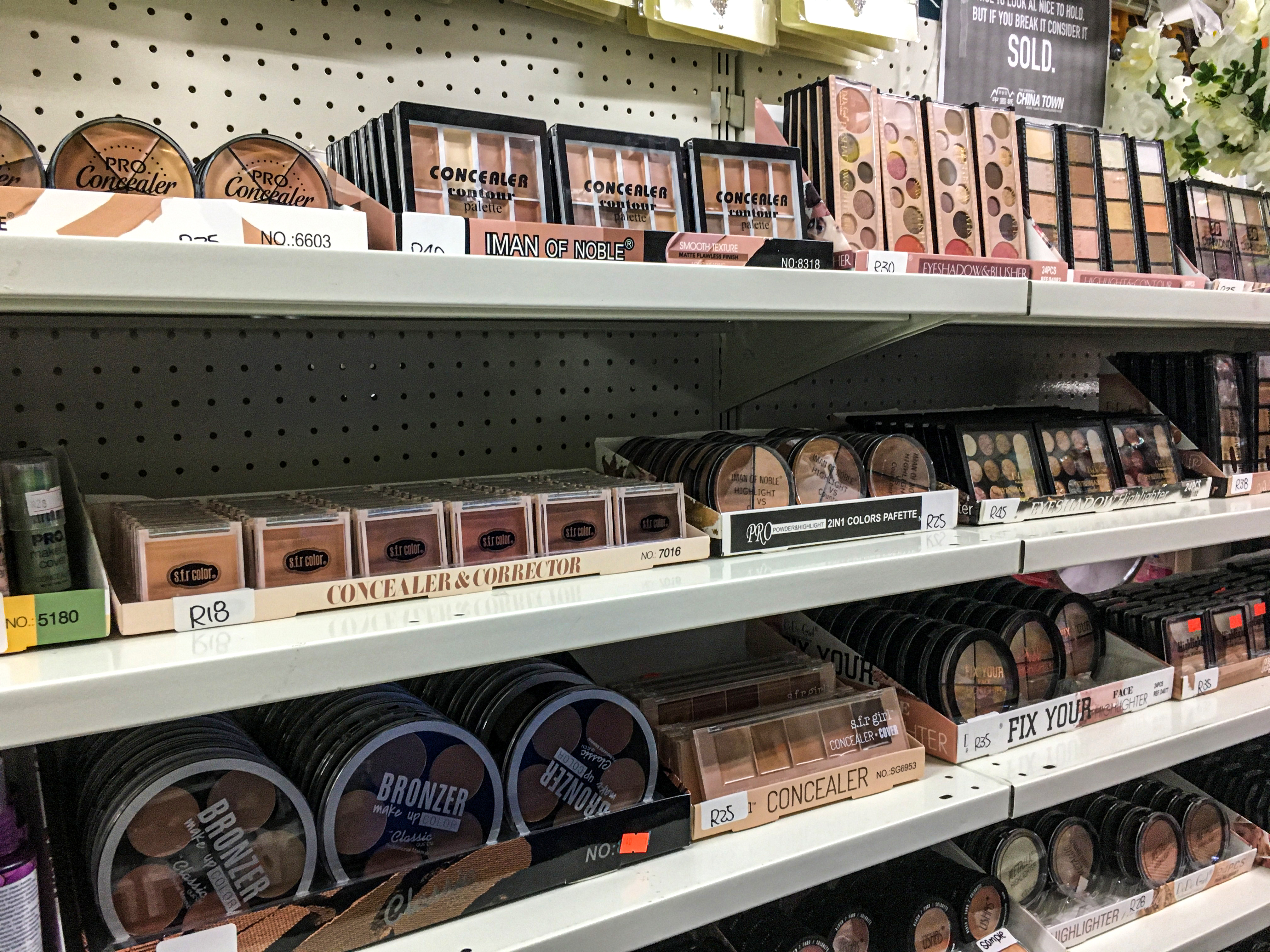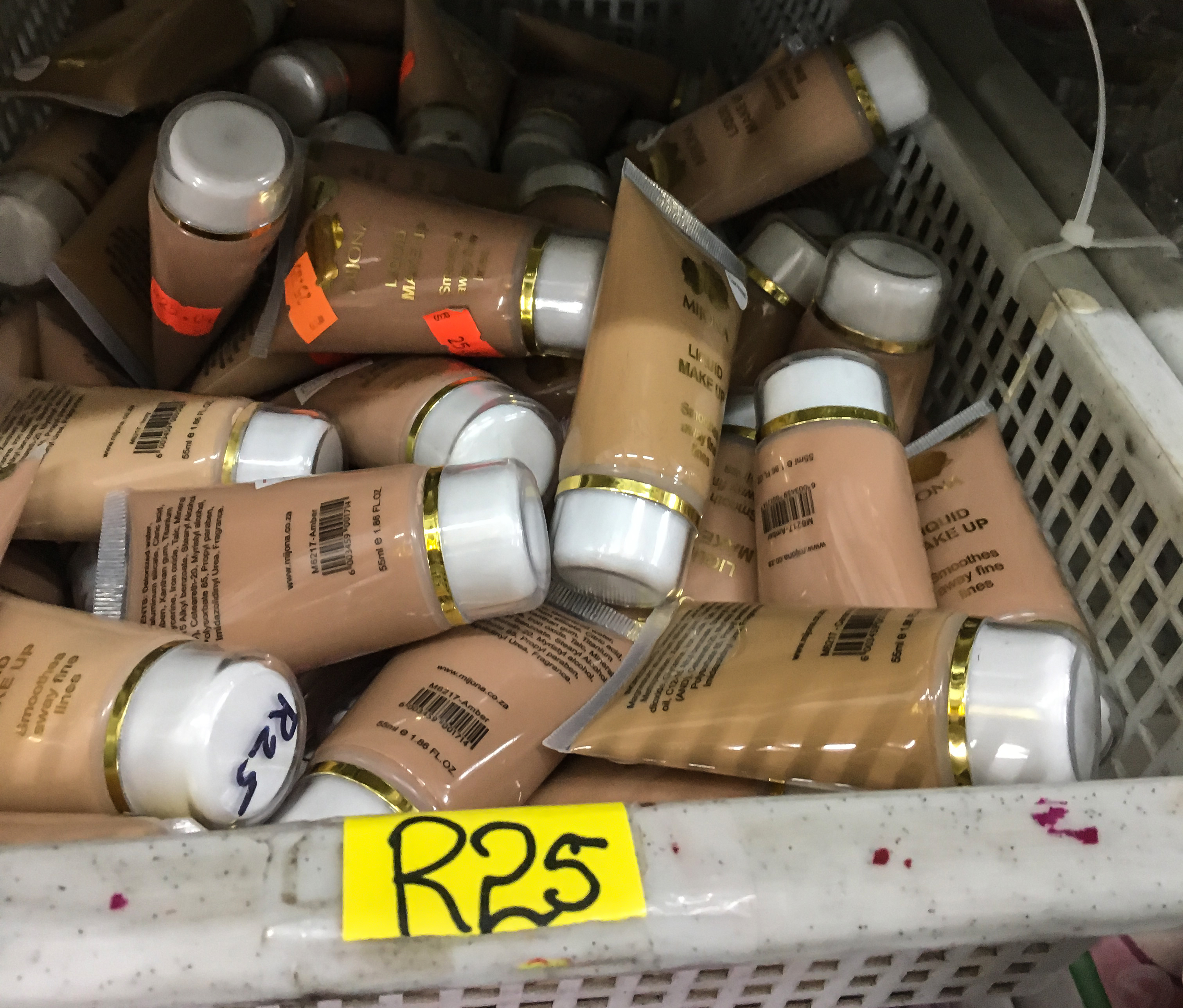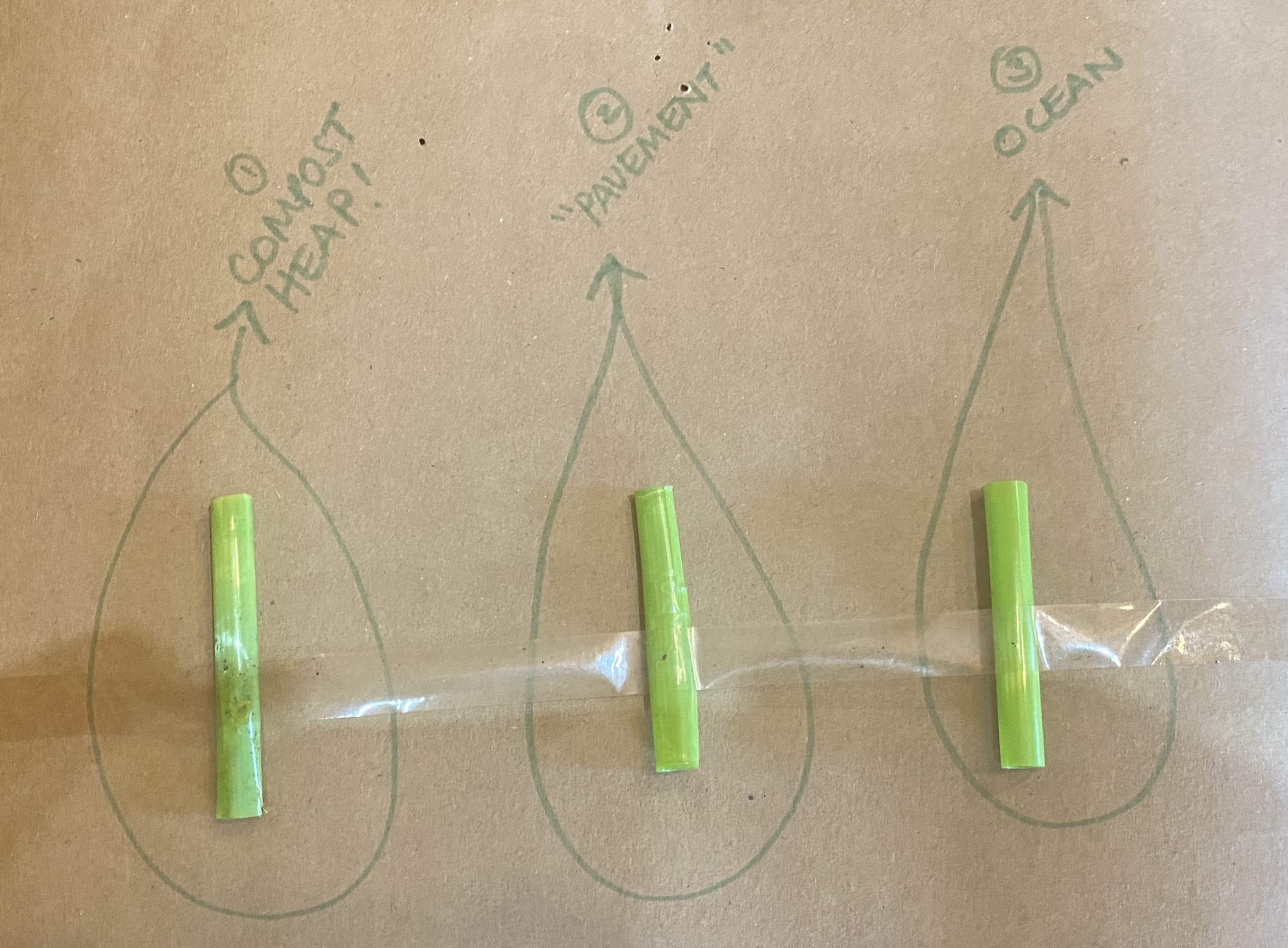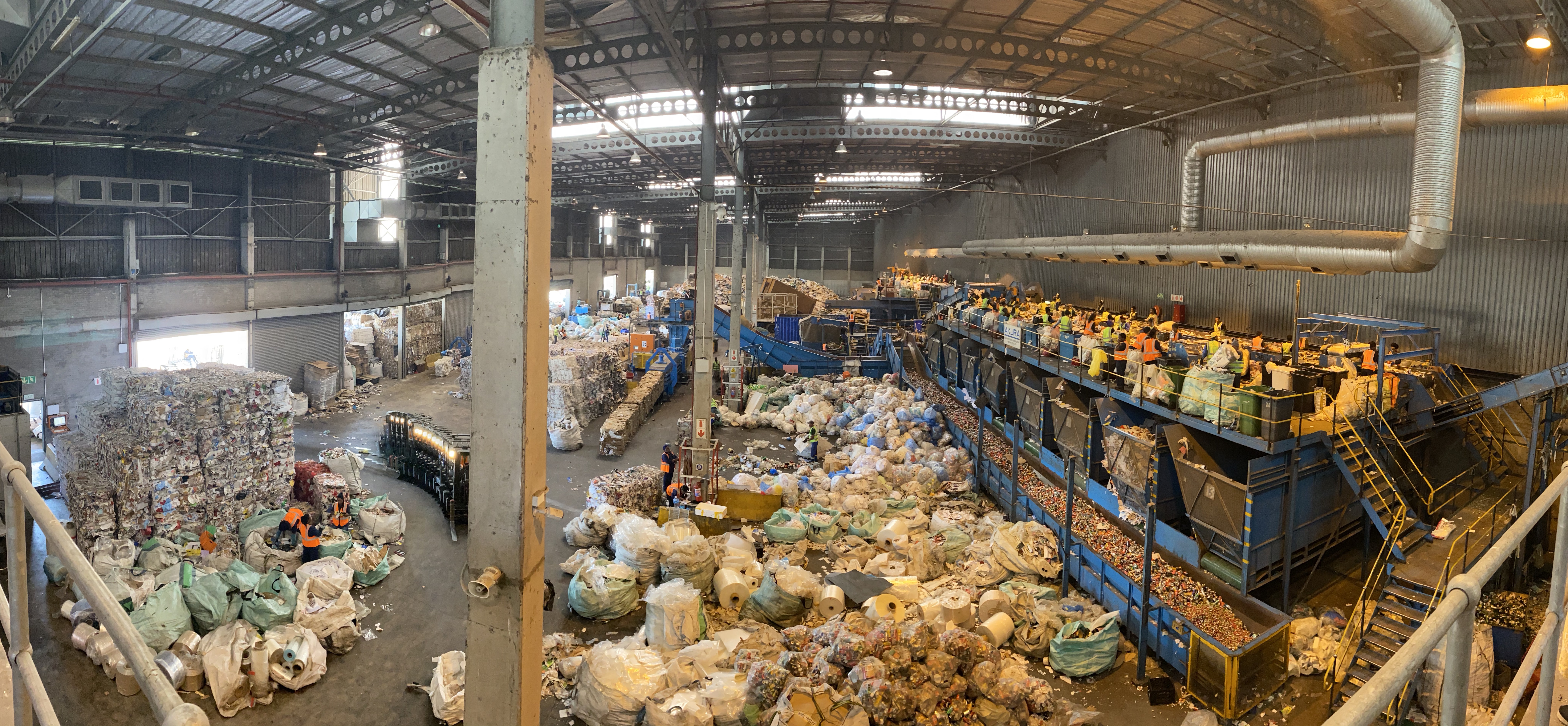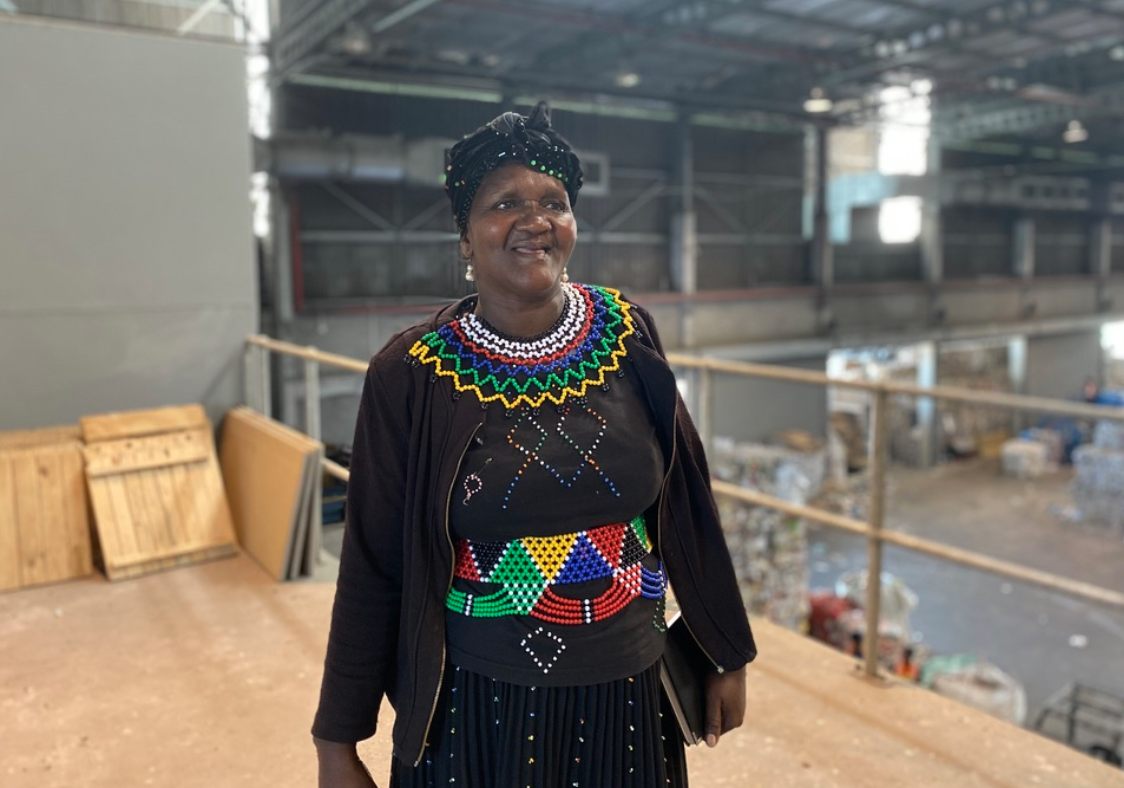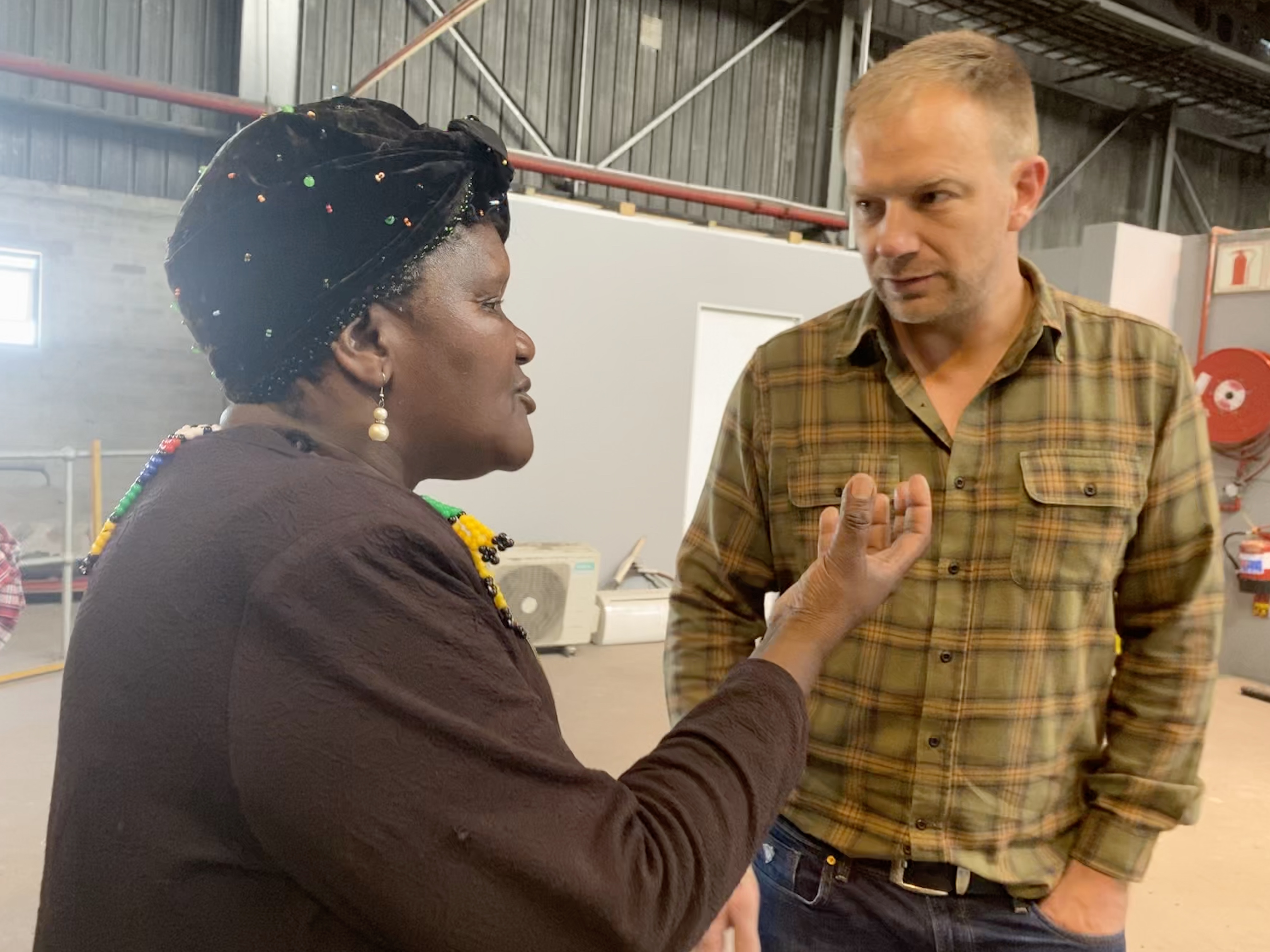MAIN IMAGE: Zulu storyboards in the Phansi Museum depict a girl’s transition into womanhood. SOURCE: Lizzie Stricklin
Deep in what was once a Durban home, in a cramped, shadowy room, lies a glass shelf dedicated to unodoli. These beaded figurines are shaped in the form of a young girl but lack eyes and a mouth, so as not to “replace [the work of] God.” Small enough to fit in a child’s hand, they resemble a colorful toy – but these are not dolls made for play.
“You don’t play with a blessing around,” said museum manager Phumzile Nkosi.

These are Zulu fertility dolls, passed from mother to daughter to mark the daughter’s first period and passage into womanhood. Later, these fertility dolls may be given to a man to mark an engagement, and one day would be passed down to the next daughter in a continuous cycle of growth and creation.
At the Phansi Museum in Durban, which specializes in art from the nations of southern Africa, curated Zulu artifacts like the unodoli are brought to life by stories from Zulu experts themselves.
As she gazed at the fertility dolls on the shelf above her, museum manager Phumzile Nkosi recounted how her mother, like most Zulu mothers, did not tell her about menstruation before her first period. When her first period arrived, she “screamed and screamed”, Nkosi said.
By contrast, Nkosi described how recently she was shocked to discover a sanitary pad in her young granddaughter’s school bag, and to realize that her granddaughter was unceremoniously approaching what would have been a momentous life event in Nkosi’s youth.
The life of Zulu women is showcased throughout the museum, in the art of painted storyboards and handcrafted utensils. On one mannequin, the role of the wife as the bearer of children is woven into every aspect of the outfit on display: from her embroidered apron, which one day would be transformed into a baby blanket, to her circular hat, woven from the hair of her family and children and permanently braided into her own.
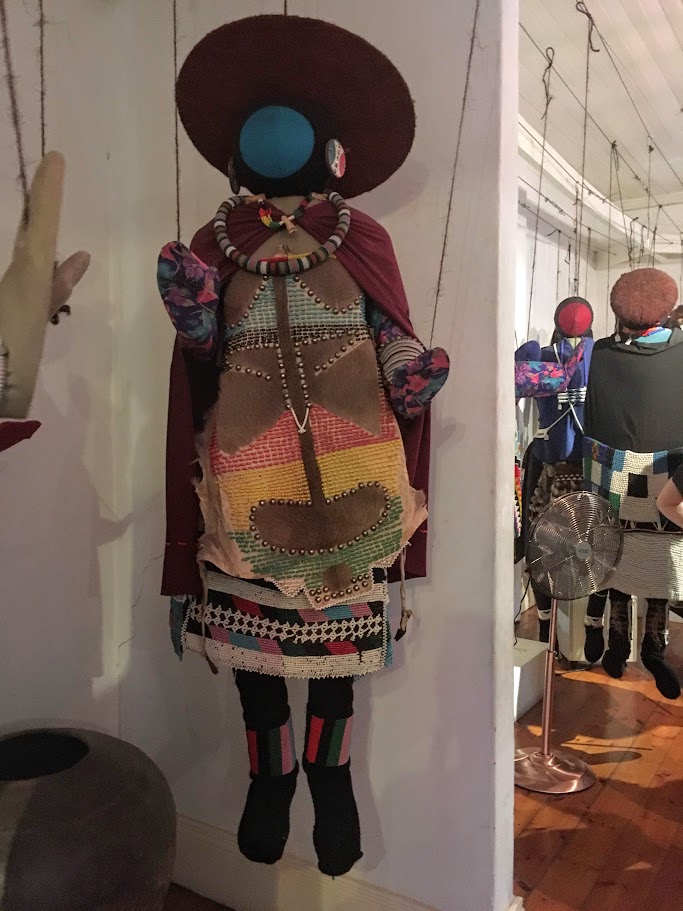
Through creatively curated displays and intriguing guided tours, the Phansi Museum connects primary stories to visual art to bring Zulu culture to light.
For Nkosi, the museum has rejuvenated her personal connection to her culture.
“The museum restored the health of my culture,” she said. “When we came to the township, we had to hide everything … but now I feel proud.”




